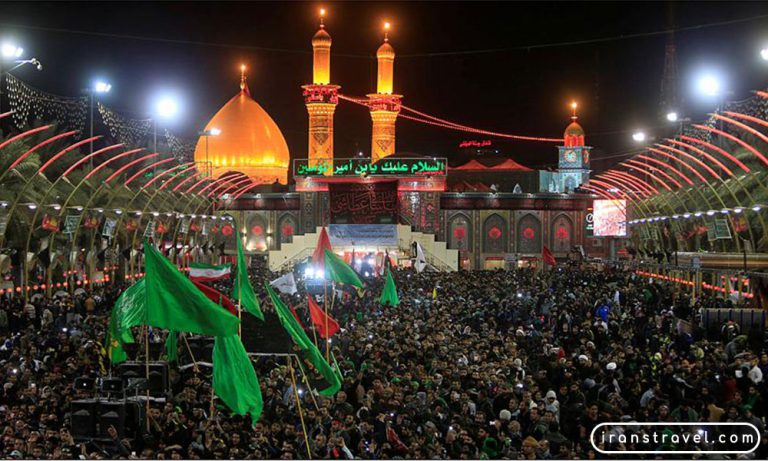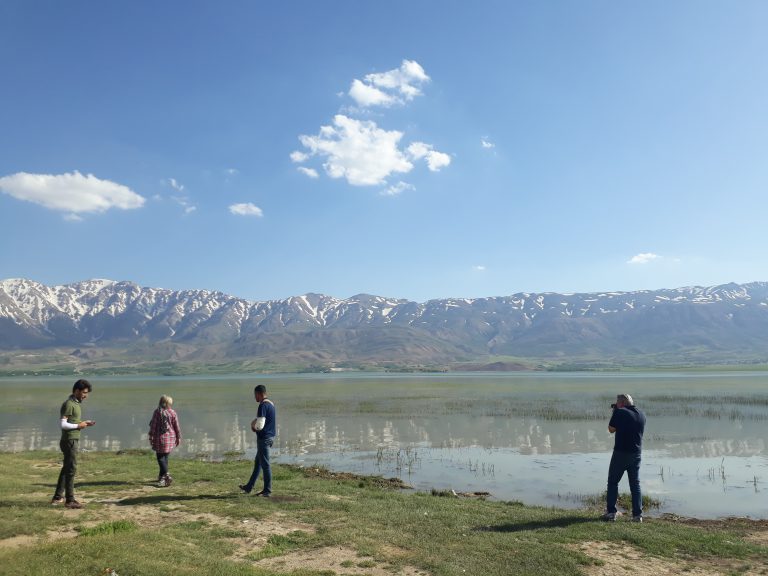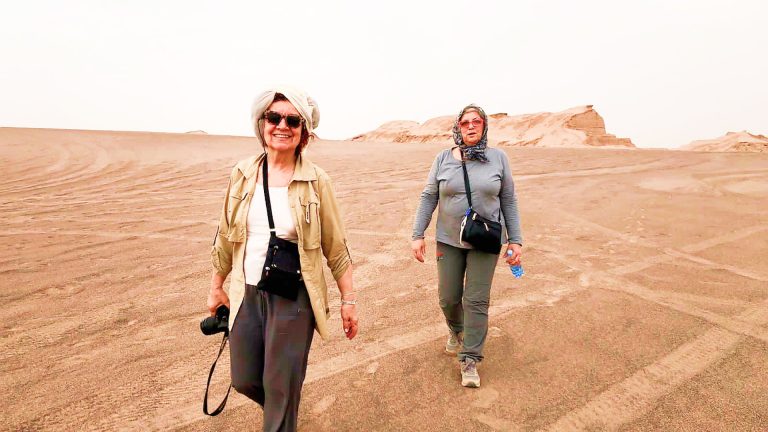Traveling to Iran can be an enriching and captivating experience, offering an opportunity to explore its rich history, stunning landscapes, and vibrant culture. However, as with any international travel, it is important to be well-informed and prepared before embarking on your journey. This article aims to provide essential Iran travel tips and information to help make your trip to Iran a safe, enjoyable, and culturally sensitive experience.
1. A Safe and Welcoming Destination
One of the most common concerns among travelers is the safety of visiting Iran. Fortunately, the answer is a resounding yes—Iran is a safe country to explore and enjoy. While Iran may face external challenges and political dynamics beyond its borders, within the country’s boundaries, it stands as one of the safest destinations worldwide.
Despite any potential misconceptions or propaganda, Iran prioritizes the well-being of its visitors. Locals genuinely care about tourists and strive to ensure that they have everything they need to feel comfortable and enjoy their time in Iran.
The warm hospitality and welcoming nature of the Iranian people contribute to the overall sense of safety. Travelers are often pleasantly surprised by the kindness and helpfulness they encounter throughout their journey.
As a travel tip, It is important to remember that every destination has its own set of precautions, and it is advisable to exercise general safety practices while traveling. These include being mindful of your belongings, using reputable transportation options, and being aware of your surroundings.
By embracing Iran as a safe and inviting destination, you can open yourself up to the incredible experiences and cultural richness that this remarkable country has to offer.
2. Visa Requirements for Traveling to Iran
Before embarking on your journey to Iran, it is crucial to be aware of the visa requirements. In most cases, travelers need to obtain a visa to enter the country. The common option is applying through a local travel agency and once your visa is approved, you can pick it up from an Iranian embassy or consulate depending on your nationality. Iran’s Travel can get your Iran visa in less than one week.
When applying for a visa, it is important to ensure that your passport is valid for at least six months beyond your planned departure date.
It is important to note that travelers holding passports from the United States, United Kingdom, or Canada require the assistance of a local travel agency to arrange a guided tour and apply for their visas.
If you have a stamp indicating a previous visit to Israel in your passport, it is necessary to wait for a period of six months before applying for an Iranian visa.
3. Be aware of the dress code
Iran has a conservative dress code, particularly for women. It is mandatory for women to wear loose-fitting clothing that covers their hair, arms, and legs in public places. Men should also dress modestly.
- For Female Travelers:
Women are required to cover their hair and body in Iran. The headscarf, known as a hijab, can take various styles. You can choose the type of hijab that suits you best, whether it’s a shawl or a scarf. Some women opt to fully conceal their hair, while others allow some hair to show from the front or back. Different styles of tying the scarf are also common, such as a small scarf knotted under the chin or a long shawl wrapped around the hair.
Additionally, women are expected to wear a longer shirt that covers the shoulders to the hips. A trousers or skirt underneath should cover from the waist to the ankles. The choice of fabric and color is flexible, as long as the clothing is not too revealing. On certain occasions like Muharram, it is respectful to wear darker-colored clothing.
During winter or summer, very short-sleeved or sleeveless T-shirts are not permitted for women. Sleeves should be long or 3/4 in length. There are no specific restrictions on shoes, and you will often see Iranian women wearing sandals during the summer months.
- For Male Travelers:
Unlike women, men are not required to cover their hair in Iran. Male foreign tourists can wear short-sleeved t-shirts or shirts without any issues. However, it is important for men to wear long trousers instead of shorts as a sign of respect.
- For children:
Children and young kids have more flexibility when it comes to the dress code. They are not obligated to wear a scarf, and they are free to wear short-sleeved t-shirts, as well as short skirts or shorts.
4. Navigating Iran’s Dual Currency System: Rial and Toman
In Iran, the official currency is the Iranian Rial (IRR). However, it’s important to be aware of the common usage of Toman, which is often used in daily transactions and price quotations. Understanding this dual currency system will help you avoid confusion when making purchases and ensure that you have a clear understanding of the prices.
To clarify, one Toman is equivalent to 10 Rials. So, when a seller quotes a price of 20,000 Rials, they mean 2,000 Tomans. It’s essential to keep this conversion in mind during your transactions to accurately comprehend the value.
Another aspect that can add to the complexity is that Iranians often simplify their conversations by omitting three zeros. For example, if a seller asks for 50 Toman, they actually mean 50,000 Tomans, which is equivalent to 500,000 Rials. Therefore, it’s beneficial to familiarize yourself with the Farsi numbers, allowing you to cross-reference price labels and avoid any misunderstandings.
5. Exploring Iran’s Culinary Delights: Beyond Kebabs
Iranian cuisine offers a rich tapestry of flavors and culinary traditions that extend far beyond the renowned kebabs. To fully appreciate the diverse and delicious food scene, it is worth investing time in researching and sampling a wide range of dishes during your visit.
From aromatic stews bursting with fragrant spices to delicately prepared rice creations, Iranian cuisine is a treasure trove of culinary delights. Expand your palate by indulging in dishes like Ghormeh Sabzi (herb stew), Fesenjan (pomegranate and walnut stew), and Zereshk Polo (barberry rice). These exquisite flavors showcase the country’s culinary prowess and cultural heritage.
Even for vegetarians, Iran offers a variety of mouthwatering options. Throughout the country, you will find an array of delectable vegetable-based dishes that showcase the freshness and diversity of local produce. From hearty soups and salads to flavorful rice dishes and herb-infused appetizers, there are plenty of vegetarian-friendly choices to satisfy your taste buds.
To make the most of your culinary adventure, consider exploring local food markets, visiting traditional eateries, and engaging with locals to discover hidden gems and authentic dining experiences. Embrace the opportunity to try new flavors, and don’t hesitate to ask for recommendations from locals who are passionate about their cuisine.
By venturing beyond kebabs and embracing the vast array of dishes that Iran has to offer, you will embark on a gastronomic journey that will tantalize your taste buds and provide a deeper understanding of the country’s rich culinary heritage.
6. Check Iran’s Public Holidays for a Smooth Trip
When planning your trip to Iran, it is important to be aware of the country’s public holidays, as they can impact your travel plans. Iran follows three calendars: the Persian (Hijri), Islamic (Lunar), and Georgian calendars. Public holidays in Iran are based on these calendars, so it is crucial to check the holiday schedule beforehand.
With approximately 25 holidays throughout the year, there are six specific occasions when attractions and sites are closed, limiting your ability to visit them:
- Martyrdom of Imam Ali
- Martyrdom of Imam Sadeq
- The demise of Imam Khomeini
- Tassoua
- Ashura
- The Demise of Prophet Muhammad and the Martyrdom of Imam Hassan
During these holidays, it is advisable to plan alternative activities or explore cultural events that may be available. On other holidays, such as the Iranian New Year, Nowruz (March 20th to April 3rd), it is recommended to book transportation tickets and accommodations well in advance due to increased demand.
If you have any concerns or need assistance regarding the holidays during your trip to Iran and potential limitations you may encounter, feel free to contact us for guidance and support. We are here to ensure your journey is as smooth and enjoyable as possible.
When visiting Iran, it’s important to note that the weekend falls on Friday, as it holds religious significance. This means that Friday is considered a holy day and serves as the official day off for most Iranians. As a traveler, it’s essential to plan your activities and visits accordingly, taking into account that some establishments may have altered hours or be closed on Fridays.
7. Crafting Your Iran Itinerary: Embrace Flexibility and Serendipity
When planning your trip to Iran, the country’s abundant historical sites, breathtaking landscapes, and vibrant cultural experiences may entice you to create a detailed itinerary. However, it is equally important to leave room for flexibility, allowing for unexpected discoveries and serendipitous encounters to enrich your journey.
While having a rough itinerary in mind is helpful for logistics and ensuring you cover the highlights, it’s essential to remain open to the possibility of spontaneous adventures. Iran is a country filled with hidden gems and surprises waiting to be unearthed. By embracing flexibility, you open yourself up to unexpected encounters and unique experiences that may not be found in guidebooks or travel itineraries.
When planning your Iran itinerary, if you find yourself in need of assistance or desire a tailor-made plan to suit your preferences, we are here to help. Our team is dedicated to providing personalized guidance and creating an itinerary that aligns with your specific interests and travel goals. Whether you are seeking cultural immersion, outdoor adventures, or a combination of experiences, we can curate a memorable journey for you.
Additionally, if you are interested in joining one of our available tours, we have a range of carefully crafted itineraries that showcase the best of Iran’s attractions and cultural treasures. Our knowledgeable guides will accompany you on these tours, providing valuable insights and ensuring a seamless travel experience.
Looking to design a customized tour that perfectly aligns with your interests, Our team is ready to assist you once again in crafting a tailor-made experience based on your unique preferences.
8. Embrace Local Interactions for Unforgettable Travel Experiences
When exploring Iran, don’t miss out on one of its most treasured gems: its people. Engaging with locals is a surefire way to enrich your journey and discover hidden treasures beyond the guidebooks. Iranians are renowned for their warm hospitality and genuine friendliness, making interactions with them a highlight of any trip.
Take the opportunity to strike up conversations, seek recommendations, and let the locals be your guide. Embrace the genuine warmth and open-heartedness of the Iranian people, and you’ll be rewarded with unforgettable travel memories. These interactions will not only enhance your journey but also create lasting connections that bridge cultural boundaries.
9. Don’t Assume, Just Ask: Inquire About Prices
When traveling in Iran, it’s essential to adopt the practice of asking about prices rather than assuming something is too expensive. You’ll often be pleasantly surprised by how affordable things can be. Before making any purchase or utilizing services, it’s wise to inquire about the price to avoid any misunderstandings or unwelcome surprises. When shopping for souvenirs, don’t hesitate to compare prices at different locations. By venturing beyond tourist areas, you’ll likely find better deals and more favorable prices. So remember, just ask and discover the affordability that awaits you in Iran.
10. Stay Connected in Iran: Internet, Communication, and Social Media Access
When traveling to Iran, staying connected to the online world and accessing social media platforms may require some additional steps. While internet access is generally available, certain websites and social media platforms might be restricted. To overcome these limitations and ensure secure internet connectivity, using a virtual private network (VPN) is highly recommended. A VPN allows you to bypass online restrictions, maintain privacy, and access your favorite websites and social media platforms.
Furthermore, upon your arrival in Iran, consider obtaining a local SIM card to ensure affordable and convenient communication throughout your stay. Local SIM cards provide you with access to mobile data, enabling you to stay connected on the go. You can easily find SIM cards at various locations, including airports and local shops.
While wifi is available in many hotels, restaurants, and cafes in Iran, it’s important to note that the speed and reliability of the connection can vary. To ensure a smooth online experience, it’s advisable to have alternative methods of connectivity in place, such as using the local SIM card for mobile data when needed.
11. Tap Water and Hygiene Tips in Iran
When it comes to staying hydrated in Iran, you’ll be pleased to know that tap water in major cities is generally safe to drink. However, to ensure peace of mind, it’s a good idea to carry a reusable water bottle and refill it from trusted sources such as filtered water dispensers or bottled water.
In addition to staying hydrated, practicing good hygiene is essential during your travels. While most places provide access to soap and water for handwashing, there may be situations where these amenities are not readily available. To stay prepared, carry a small bottle of hand sanitizer or wet wipes and also toilet paper in your bag. These convenient tools will come in handy when you’re on the go and need to freshen up.
12. Iran Travel tips: Alcohol is prohibited in Iran
During your visit to Iran, it’s important to familiarize yourself with the alcohol regulations in the country. Please be aware that the consumption and sale of alcohol are strictly prohibited due to religious reasons.
In Iran, you will not find alcohol available for purchase in restaurants, bars, or stores. It is essential to honor and comply with these regulations, demonstrating respect for the local customs and traditions.
13. Secure Your Journey with Travel Insurance for Iran
When planning your trip to Iran, it is crucial to prioritize obtaining comprehensive travel insurance. This ensures that you are adequately protected against any unforeseen circumstances and allows you to explore the country with peace of mind. While it is technically possible to purchase travel insurance at the airport, it is recommended to obtain it beforehand. This way, you avoid the hassle of having to stand in another line at the airport and can proceed with your journey smoothly.
For your convenience, Iran’s Travel can assist you in obtaining suitable Iran travel insurance. We can guide you through the process and ensure that your policy is valid and in compliance with the necessary regulations.
14. Squat Toilets in Iran
While many hotels, guesthouses, cafes, and modern houses are equipped with flush toilets, public toilets in Iran commonly feature squat toilets.
Check with Your Accommodation: If you have a preference for flush toilets or are concerned about using squat toilets, it’s advisable to inquire with your chosen hotel or accommodation in advance. They can provide information about the toilet facilities available to ensure a comfortable stay.
While toilet paper is commonly found in mini-markets and stores in cities, it may not always be readily available in public restrooms. To be prepared, carry a small supply of toilet paper or wet wipes with you during your travels.
15. Being Mindful of Security Warnings in Iran
When traveling to Iran, it’s important to stay informed about security warnings to ensure a stress-free trip. Here are a few key points to consider:
Drone Restrictions: It’s crucial to note that bringing a drone to Iran is not permitted in most cases. Under specific circumstances, you may need a permit to fly a drone. To avoid any legal issues or complications, it’s best to refrain from bringing a drone with you during your visit.
Photography Restrictions: Exercise caution when taking photos in Iran. It is strictly prohibited to photograph military establishments or personnel. To respect local regulations and ensure a smooth experience, refrain from capturing images in these restricted areas.
16. Understanding Târof: Cultural Etiquette in Iran
Before visiting Iran, it’s important to familiarize yourself with a unique aspect of Iranian culture called Târof. This customary practice often surprises travelers when taxi drivers, cashiers, or shopkeepers refuse payment and say, “ghâbel nadâre” (meaning it’s my treat or it’s on me). However, it’s essential to know that this doesn’t mean you can simply leave without paying.
Târof is a polite gesture deeply rooted in Persian culture, reflecting hospitality and generosity. It’s a form of social etiquette where individuals offer something out of politeness, even if they expect the other person to decline and insist on paying. The polite back-and-forth continues until an agreement is reached.
If you encounter Târof during your interactions in Iran, it’s customary to engage in a gracious exchange. Politely insist on paying, but if the person continues to insist that it’s their treat, accept the gesture with gratitude. This cultural practice is also common among Iranian friends, where treating each other becomes a delightful part of building relationships.
17. Traveling as a Couple in Iran: Cultural Considerations
When traveling as an unmarried couple in Iran, it’s important to be aware of certain cultural norms and practices. While rules regarding public displays of affection are more relaxed for tourists, there are still some considerations to keep in mind.
As an unmarried couple, you are generally allowed to stay in the same room at hotels and engage in activities such as walking together and holding hands. However, it’s important to note that public displays of affection such as kissing, hugging, and dancing are not widely accepted by couples, whether married or unmarried.




